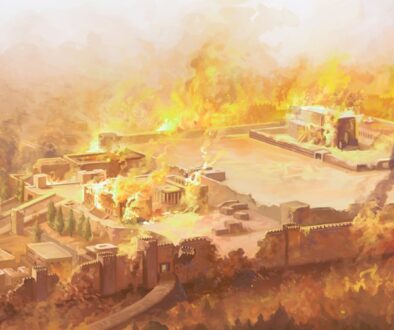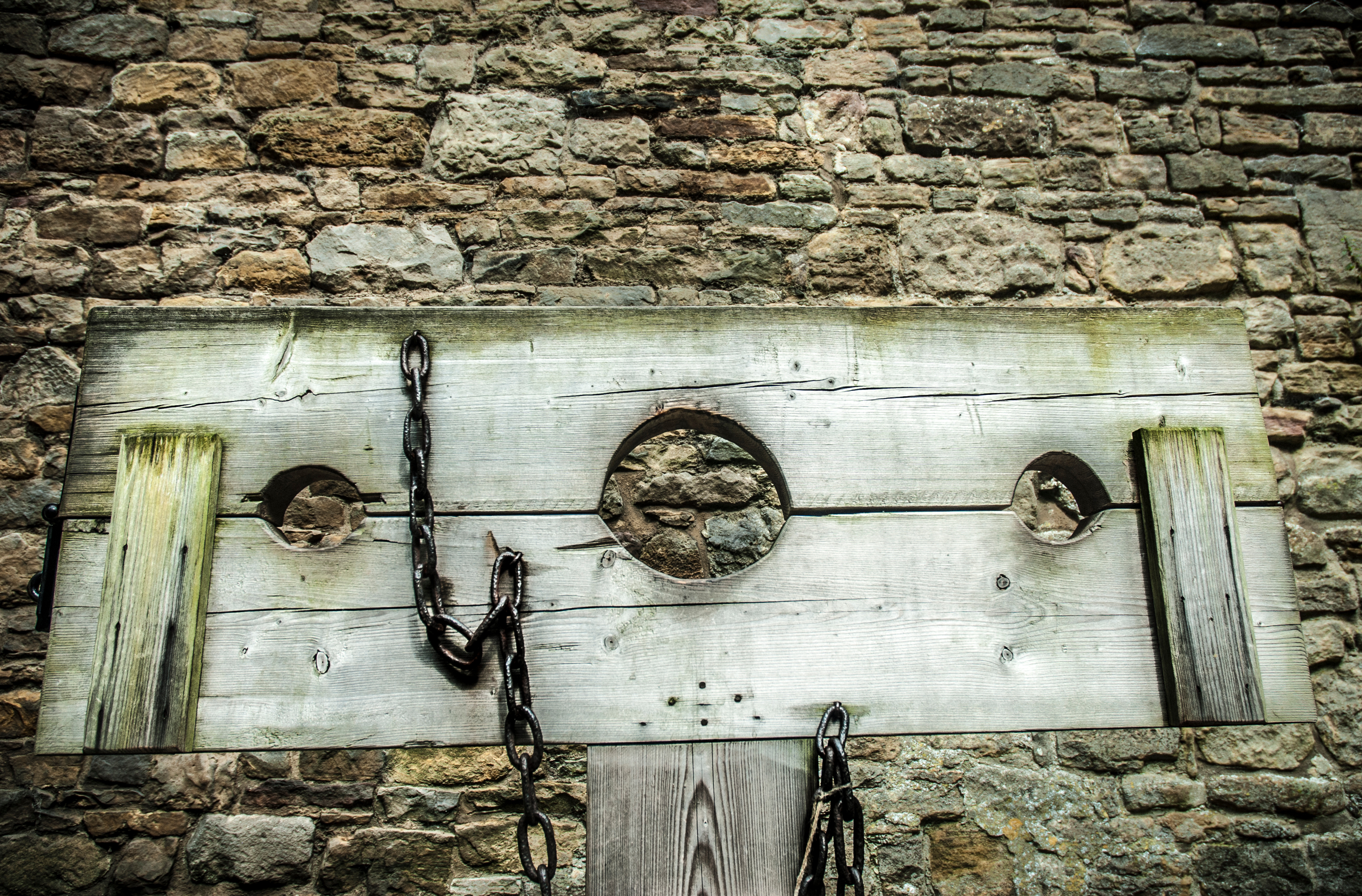2 Kings 15 Fast March

It’s time for a fast march through several of the kings of Israel. Two have very short reigns, and all have a smattering of information. ALL continued in sin; worshiping the golden calves of Jeroboam.
The fourth generation of Jehu, that God promised would rule Israel, takes the throne. He is the son of Jeroboam II and he reigns for six months. In those six months, he does as all the kings before him did; serve the golden calves.
Shallum conspires against him right away and kills him to take his place. Shallum lasts ONE month on the throne before a despicable man takes his place. Menahem forces his way onto the throne, leaving a trail of dead bodies in his wake.
Menahem reigns for ten years and then the throne passes to his son, Pekahiah. He makes it two years before being assonated by Pekahiah. He sticks around for twenty years before being assonated by Hosea, Israel’s final king.
Except for Hosea, who we will look at on another day, all these changes happened in Israel while Uzziah was on the throne. Jotham was certainly co-regent for some of these changes. I wonder if watching the ‘quick change’ of Israel made Jotham more committed to following the Lord. Let’s pick up our journey through time with Israel and see where the Spirit takes us today.
♥ ♦ ♥
Zechariah finishes the month of mourning for his father, Jeroboam II. He is excited to finally take the throne. His father had a good long reign and he is looking forward to the same. He knows the prophecy given to his great-great-grandfather Jehu. He was told that to the fourth generation, his sons would rule Israel. Zechariah is the fourth generation.
Zechariah decides not to make any big changes. “Why fix what is not broken” is his philosophy. Zechariah’s focus is to hold the territories that his father had taken from the other nations. He does not look to the problems inside Israel.
The inequity of the poor, those in the house of Zechariah gloss over. He and those who advise him look only to their own status and tables. “There is no lack in Israel. We have all we need”, they tell themselves and the king.
The nations that pay tribute to Israel begin refusing to do so any longer. Jeroboam II is dead and they see his son as unworthy of the title of king. “He has no power over us and we own him on allegiance.”
Zechariah watches with growing concern as, one by one, the nations withhold their tribute. The absence of the tribute is not affecting the king’s table, as he takes what he needs from those beneath him. But his nobles are noticing a decrease in their own. They call out to Zechariah to ‘fix this’.
“You cannot stand by and let the nations think they are free to do as they please! Before long, they will all rebel. You must make an example of those who are defying the throne.”
Zechariah agrees with this assessment. “Rally the troops of Israel. We will put down these rebellions once and for all.”
When the army of Israel gathers, it is clear to anyone who wishes to look, that there is a problem. The soldiers were taken from throughout Israel and pressed into service. Many are under nourished. Most have no armor to protect them in battle. And all are dispirited. It does not help their moral when the king assesses them. He is rotund and always has a leg of something in his hand that he is ‘snacking’ on.
“My men of valor” shouts Zechariah while holding aloft a leg of lamb, dripping with fat. “We fight today to return to Israel what is her due. To those who are withholding their tribute, they will see the mighty hand of Israel on their necks. Once this is restored, prosperity will again reign in Samaria.”
That evening, several of the commanders come together to talk about what happened this day.
“What did you think of the king’s speech?”
“I think he is a blind fool! He has no idea the kind of existence most of these men live under. How we struggle to feed our families. It is clear that he doesn’t miss many meals!”
“And if the ‘tribute’ does resume, who is supposed to benefit from the influx?”
“Surely not us!”
“If my family cannot eat, then neither can his! Let him fight to fill hos own table. I won’t fight for it either.”
An even quieter conversation is taking place in the tent of Shallum.
“We need to get rid of that idiot on the throne” Shallum spits. “He will be the death of these poor men. He has no concept of what it takes to a king.”
“I will follow you, if and when you decide to act. You have the skills necessary to be king. Take it from his hand!”
Shallum thinks over his companion’s words. They are all true! THIS is the beginning of Shallum’s bid for the throne. He sets his eyes on it and will wait for the right moment.
Shallum’s moment comes when the king calls him to the palace. Zechariah has no idea that he is in danger. He wants a report on how things are going regarding restoring the tribute, and fear of Israel, into the people. Zechariah sits at his table stuffing his face. Shallum watches with disgust and anger. The rations for the troops is little better than thick water.
“How goes the campaign” asks Zechariah.
“It crawls on the empty bellies of the men.”
“And what is that supposed to mean” demands Zechariah.
“It means that there is a BIG difference between how those who fight your battles eat and how you eat. They starve to death to fill your plate! This ought not to be.”
“I am the king. I have to set a good example. The people need to see that their king is doing well to maintain their confidence.”
Shallum has reached his limit. He rushes the table and grabs the king by his arms. He forces the one holding the drumstick of a turkey so far into the king’s mouth that he chokes on it. Shallum holds it there while pinning the king’s other arm. Zechariah cannot clear his airway and chokes to death.
The guards stood by and watched as Shallum took the life of the king they despised. Once the deed is done, they rush forward and pronounce him king. Shallum calls for the king’s servants to gather up the meal and deliver it to the garrison where the starving troops are waiting.
Shallum takes the throne the very next day. The troops will accept nothing less. Shallum’s first order is that the noble’s tables be emptied and fed to the people as well. He becomes popular with the people right away, but the nobles are furious.
It Tizrah a man named Menahem decides to strike back. He is a cruel man, as anyone who has ever crossed him before knows. He has men who are loyal to him and will do whatever he instructs them to do. Menahem declared that he will be king to his town. The people refuse to follow him.
“Kill them! And rip open every pregnant woman, for I will not allow this rebellious people to continue” he commands his men.
Menahem cuts a swath of destruction all the way to Samaria. Even Shallum does not have the strength to stand against him. Menahem has Shallum brought out of the palace and killed on the steps.
“Any who defy me will receive no mercy” he calls out to the people. They are all terrified and pose no opposition to him taking the throne. Menahem rules by terror and intimidation for the next ten years.
During his time on the throne, Pul, the king of Assyria comes against Israel. Menahem does not have enough loyal troops to stand against him, so he offers him a bribe instead.
“I will give you one thousand talents of silver if you will withdraw from the land and make it appear that I have saved Israel.”
“If I agree to this, when do I expect payment? And what is to prevent me from coming at you again?”
“I will deliver all the tribute to you within three days of your departure. And I would expect you to give me your word that you would not return during my reign. What you do after that is between you and your gods.”
Pul agrees to the terms and withdraws his men from Israel. Menahem goes to the nobles of Israel and demands fifty talents of silver from each of them. What he collects from the nobles will pay Pul. Whatever is left, will fill his coffers.
The nobles know the cruelty of Menahem and gladly surrender their ‘tax’ to remain safely in their homes. Pul does not attack Israel all the days of Menahem.
Menahem falls ill and does not recover. His son, Pekahiah takes the throne in his place.
Menahem had made his men the palace guards, When Pekahiah became king, they continued on in his service. He was a poor imitation of his father. He did not command the respect of the people or his men. Menahem’s men tried to raise him up in his father’s ways, but Pekahiah did not have the heart for what needed to be done. After almost two years, his captain, Pekah, rises up against him. Menahem men had abandoned Pekahiah after seeing how worthless he was. Pekah recruited fifty men of Gilead who follow him fully.
Pekahiah is struck down in the king’s house while in the bath house with Argob and Arieh. Pekah then takes the throne. He returns to the ways of intimidation that his previous master had trained him in. He keeps control of Israel for twenty years. Pekah begins to have other matters he has to focus on. Pul is no longer king of Assyria. Tiglath-pileser is, and there was no treaty beyond Menahem, Pul, and future generations.
Tiglath-pileser begins attacking Samaria. He is very successful in his campaign and begins stripping away the cities that Jeroboam II had added to Israel. Tiglath-pileser captured “Ijon, Abel-beth-maacah, Janoah, Kedesh, Hazor, Gilead, and Galilee, all the land of Naphtali” (2 Kings 15:29). Tiglath-pileser carried the captives away to Assyria.
Pekah is losing Israel bit by bit and the respect of the people by leaps and bounds. Hoshea the son of Elah, begins conspiring against him to take the throne. When Hoseah comes for him, Pekah almost welcomes it. He is tired of these ungrateful people. Hoseah relieves him of the ‘burden’ of the throne with a well-timed dagger thrust to his stomach.
Hoseah now holds the throne of Israel. And Jotham, son of Uzziah holds the throne of Judah. All the kings leading up to this moment have followed in the footsteps of Jeroboam, the son of Nebat, who erected the golden calves for Israel to worship. None have tried leading the people back to the Lord, and none have stopped bowing down to strange gods in their own lives. The Lord calls all of these men evil.
(to be continued)
I wonder if Zechariah had an inkling in the back of his mind that told him that he was going to be killed? He was the last of the four generations promised, meaning that he would not have a son sitting on the throne. To me, this would mean certain death while on the throne.
We have so little information about these kings, that I tool a little ‘poetic license’ with their stories. I pray that the Spirit led my wanderings and brought the men to life a little more. Israel never turns from the sin of Jeroboam I. I wonder how different their story would be if they had. If even one of their kings had broken down the golden calves. But this too is woven into God’s tapestry. The next time we revisit the kings of Israel, we will also visit their ultimate fall. Hosea is the last of the northern kingdom’s kings.
A lifestyle of sin, no matter how many ‘good things’ you do will NOT make you a good or godly person. God calls us to walk away from sin. To repent and turn away. If we don’t walk away, then there was no repentance. The one sin that ran through the timeline of the nation of Israel is idolatry. God DOES NOT share his love with another, no matter if your ancestors did it and survived. God judges us each for what we do in this life. EACH of those who bowed the knee to Baal and the golden calves are judged for their actions. Those who didn’t, or turned away from them found God’s hand in their lives.
Father God, I pray that I have RUN from anything that tries to put itself on Your throne in my life. I know that the ‘running’ isn’t physical, for the most part, but changes in my heart. Thank You for helping me tear down all the ‘golden calves’ in my life. They were not gold but made of clay and worthless! Help me to follow Your heart all my days!




